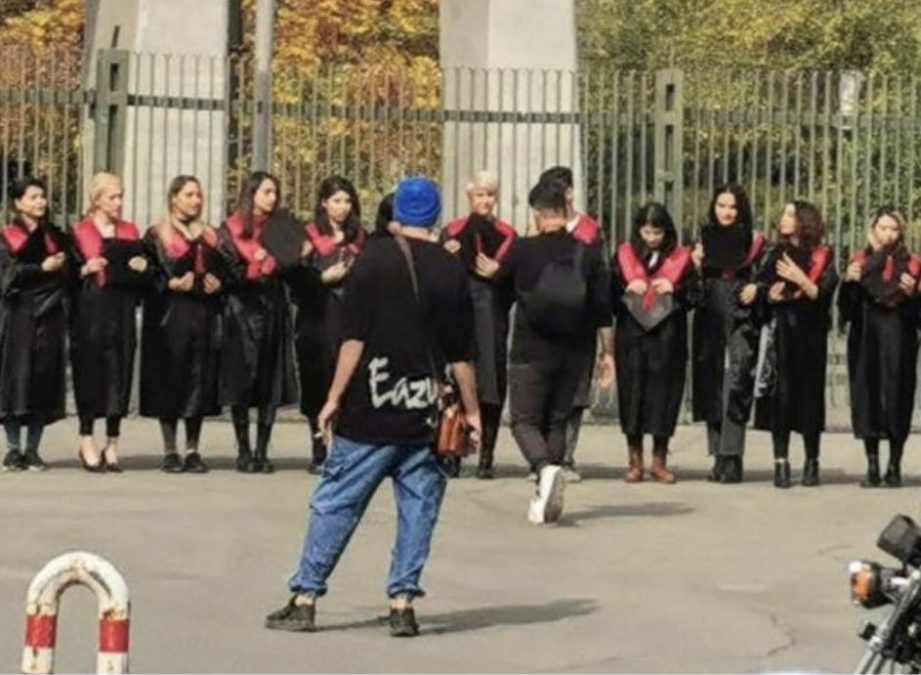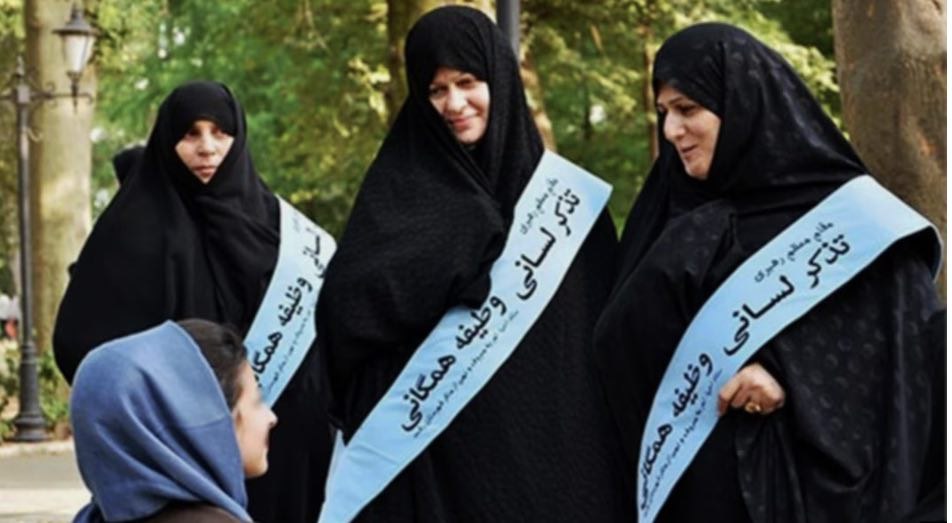Hijab and Nothing Else
Simultaneously with Ebrahim Raisi’s emphasis in his latest television interview on the necessity of implementing the hijab law in Iran, despite recent months of opposition, a member of parliament also called for the establishment of the Ministry of Promotion of Virtue and Prevention of Vice.
Hoseinali Haji Deligani told the Entekhab website, ‘I believe we should establish Article 8 of the Constitution, which discusses the promotion of virtue and prevention of vice, as a completely independent and supra-branch organization.’
He added, ‘From the beginning of the revolution, we should have established the Ministry of Promotion of Virtue and Prevention of Vice. Today, this necessity is required.’ This representative stated several times during his remarks that the best decision currently is the same ministry.
Haji Deligani claimed that the majority of society consists of faithful and Muslim people and that our society and religion do not accept this type of modern hijab. He described the enforcement of compulsory hijab on Iranian citizens as a cultural, social, and educational matter and added that in the plan that the parliamentary cultural commission is preparing for this purpose, perhaps the police force would not even have a five percent share.
Following the death of Mahsa Amini, who was detained by the Guidance Patrol in Tehran, and the start of nationwide protests under the slogan ‘Woman, Life, Freedom,’ the opposition of ordinary citizens and several well-known figures against compulsory hijab in Iran became public.
Return to Default Settings
After months of suppressing protests and the continued strong opposition of women to compulsory hijab, the authorities of the Islamic Republic initially announced the shutdown of the Guidance Patrol, but interactions with citizens to enforce compulsory hijab continued.
The increase in Guidance Patrols in religious cities such as Qom and Mashhad, the presence of women promoting virtue in subways and women’s train cars, the sealing of public places such as amusement parks and shopping centers due to unveiling, the formation of cases for government employees indifferent to hijab, and the issuance of heavy sentences for women promoting unveiling are among these actions.
Ali Khanmohammadi, the spokesperson for the Headquarters of Promotion of Virtue and Prevention of Vice, previously stated without details that the mission of the Moral Security Patrol had ended and would be presented in a more modern framework.
About two months after these statements, Ebrahim Raisi also said in a television interview on Monday, February 11, after months of protests against compulsory hijab in Iran, that hijab is a religious necessity and that our women and girls across the country adhere to it. Without mentioning the violence for enforcing hijab in Iran, he introduced the solution to observing this matter as social rather than political and security-related.
He reiterated Ali Khamenei’s claim that those with weak hijab have struck at the mouths of the ill-wishers and enemies of the Islamic Revolution, emphasizing that according to the Supreme Council of the Cultural Revolution’s resolution since 2005, the Ministry of Interior is obliged to implement the hijab law.
It seems that despite widespread protests, the officials of the Islamic Republic do not intend to back down on the issue of hijab and pay attention to the citizens’ requests, and they continue to try to enforce strictness over this matter and other aspects of people’s private lives.
Another Headquarters
Kobra Khazali, the head of the Women’s and Family Cultural and Social Council and a member of the Supreme Council of the Cultural Revolution, stated at the 38th anniversary ceremony of the council, titled the ‘Second Step Conference of the Supreme Council of the Cultural Revolution on the Path of Transformation,’ held at the Vahdat Hall, ‘Today, we are in the second step and cultural movement of the Islamic Revolution, which is a collection based on Islamic culture with a religious revolutionary perspective.’
She stated that the revolutionary people of Islamic Iran have always emphasized the precise and firm implementation of the laws related to hijab and chastity, saying that the laws of chastity and hijab, approved by the Islamic Consultative Assembly or the Supreme Council of the Cultural Revolution, will soon be implemented with strength in the country.
She stated that the issue of hijab and chastity in the country requires the creation of a strong headquarters and presented her suggestions on changes and cultural transformations, saying that theorizing and producing knowledge based on divine views, Islamic rationality against secular rationality, cultural engineering changes based on transformation towards emergence, changing lifestyle through family reforms, turning threats into opportunities through solidarity between aligned countries, reducing dependency on global organizations like the World Bank, are among the strategies for achieving cultural transformations.

It seems that neither society nor the government has decided to retreat from their positions on compulsory hijab, and possibly in the coming months and with the start of spring, we will likely witness serious and field disputes between opponents of compulsory hijab and the Guidance Patrol.
The Future of Hijab
The scenarios for the future of hijab in Iran were the title of a project proposed in the second half of 2021 at the Mehristan Family Think Tank. In this project, after reviewing the literature on the subject, reviewing the background, and identifying the present discourses, the dominant elements, causes, and drivers of the phenomenon of unveiling were identified separately according to the Causal Layered Analysis (CLA) method. Subsequently, to identify the main drivers and scenario planning, complementary actions were needed. However, given the speed of developments, it seems that if the government does not make a decision consistent with the reality of the majority’s wishes, the issue of compulsory hijab still has the potential to create serious disputes.
In this regard, articles have been exclusively published on Iran Gate.
- The End of the Honeymoon of Optional Hijab
- Unveiling in the Bank, Not in the National Team’s Joy
- Hijab: A Red Line That Fades

